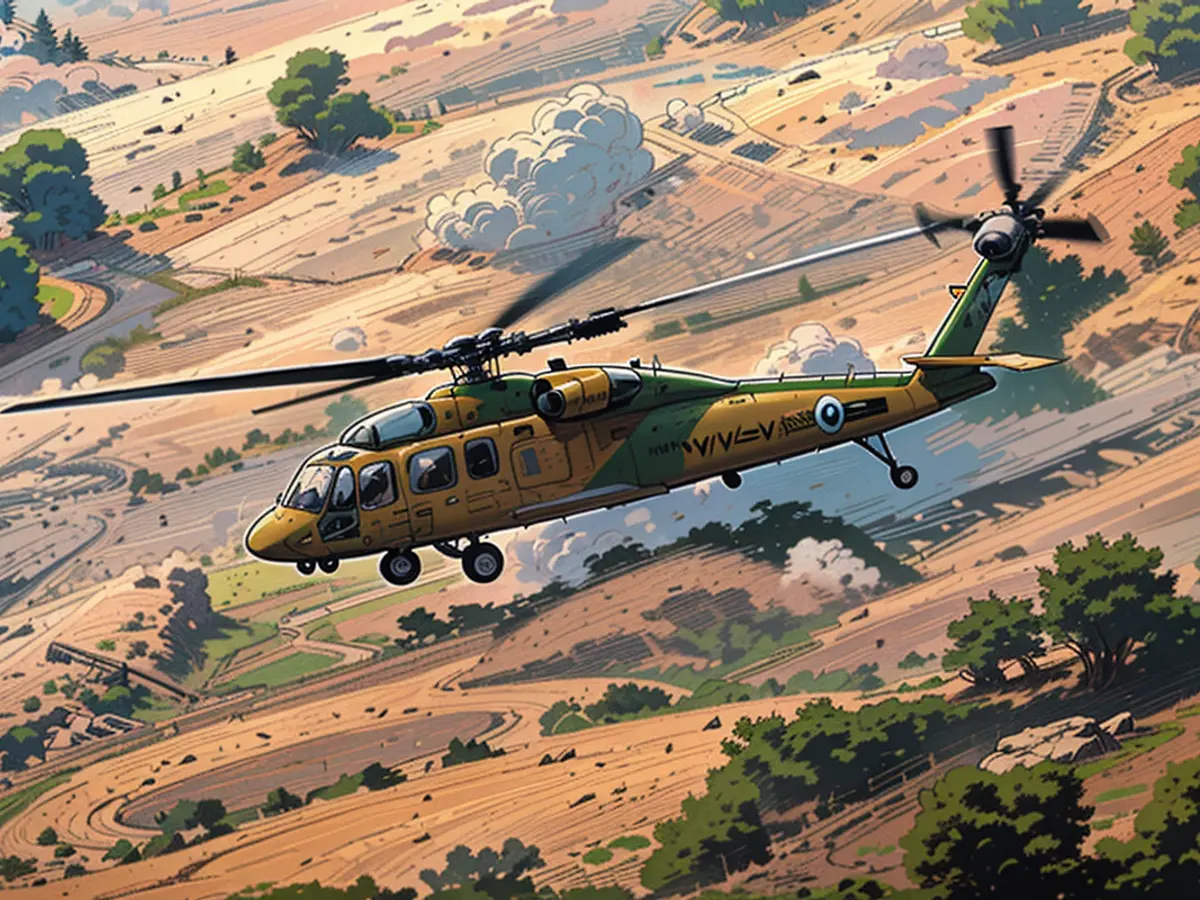Lebanese are concerned about Israeli large-scale attack
The anger in Israel following the lethal attack on the Golan Heights is great, with Hezbollah identified as the culprit. The Lebanese organization in Beirut denies responsibility. However, the civilian population still fears a imminent attack.
In the Lebanese capital Beirut, there is an uneasy calm before a possible Israeli attack against Hezbollah militia. The streets of the coastal city were unusually empty over the weekend - possibly due to residents staying home to follow the latest news about the conflict with Israel. In many cafes and restaurants, conversations revolved around the situation along the southern border of the country with Israel.
"I'm worried because I brought my children here to enjoy the summer with the family," said Sami Kinaan, a businessman living in Dubai. "And I hate having to leave the country quickly with three children if Israel attacks." Others seemed more indifferent. Israel has threatened attacks on Hezbollah since October, but neither Israel nor Hezbollah want a war, said resident Mona Dahir. She didn't care if Israel attacked - she was still going to the beach.
Partially, Israeli fighter jets could be heard in the sky. "They want to instill fear in us, but we are survival artists," said a waiter named Imad. "I'm here to think about other things," said a restaurant owner. A woman said, "For me, the loss of any civilian lives on both sides is sad."
Twelve children and adolescents killed
On Saturday, at least twelve people aged 10 to 20 were killed in a rocket attack on the Druze village of Madjal Shams on the Golan Heights. Most of the victims were children and adolescents. Israel held the Iran-backed Lebanese Shia militia Hezbollah responsible for the attack and threatened retaliation. According to military reports, the Israeli Air Force bombed several Hezbollah targets in Lebanon overnight.
The incident caused international alarm and concern about the escalation of violence in the region. UN representatives called on both parties to "maximum restraint." The US and EU also condemned the attack.
It is suspected that the rocket attack on the Golan Heights was in response to an Israeli attack on the village of Kfar Kila near the Lebanese-Israeli border, where, according to Hezbollah's statements, four of its members were killed. However, Hezbollah denied involvement in the attack on the Golan Heights in a statement. This was rejected by Israel. Israeli Chief of Staff Herzi Halevi said during a visit to the site of the strike that it was a Falak rocket with a 53-kilogram explosive charge. It was a Hezbollah rocket, he said. "Who fires a rocket into a civilian area wants to kill civilians, wants to kill children."
Israel demands Hezbollah withdrawal
However, Israeli military expert Sarit Zehavi pointed out that Hezbollah had claimed attacks on an Israeli military base on Mount Hermon before the deadly incident. "It's very easy to miss the base on Mount Hermon with imprecise rockets like the Falak," she noted. Madjal Shams is located directly beneath it. The rocket strike in the Druze village could therefore have been a misfire.
A speaker from the Israeli Ministry of Foreign Affairs stated despite that, there is only one way to prevent a comprehensive war now, "which would also be devastating for Lebanon." Hisbollah must be forced to withdraw in accordance with a UN resolution behind the Litani River, wrote Oren Marmorstein at X. This is located 30 kilometers from the border between Israel and Lebanon. "Now is the last minute to do this diplomatically."
For months, there has been concern that the fighting between Israel and Hisbollah could develop into another comprehensive war, adding to the Gaza War. Many Lebanese are therefore seeking distraction, for example at the beaches or in the mountains of the Mediterranean country. Lebanon is also struggling with the worst economic crisis in its history and a persistent political crisis.
- The Israeli-Lebanon border has been a hotspot of conflicts due to Hezbollah's activities, with Beirut, the Lebanese capital, rarely staying away from the escalations of Wars and Conflicts between Lebanon and Israel.
- Despite international condemnation and calls for maximum restraint, Hezbollah, an Iran-backed Lebanese Shia militia, continues to deny involvement in the rocket attacks on both the Golan Heights and the Druze village of Madjal Shams, sparking tension in Beirut.
- The Politics surrounding Israel-War and Israel's demand for Hezbollah's withdrawal beyond the Litani River has sparked debates in cafes and restaurants in Beirut, with local residents expressing varying degrees of concern and indifference.
- As tensions between Israel and Lebanon heighten due to wars and conflicts, Israel has threatened to strike Hezbollah targets in response to the rocket attacks from Beirut, causing unease among the civilian population in both countries, including children and adolescents in Beirut and the Golan Heights.








